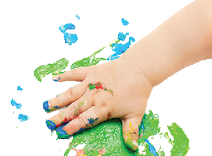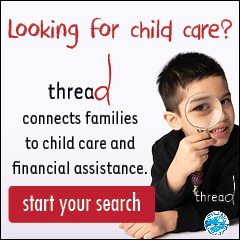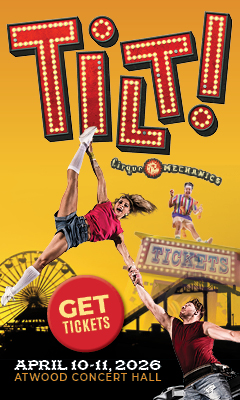
10 Ways to Help Your Baby Blossom through Play
Playtime: It’s more than just fun and games
By Karyn Robinson-Renaud, MSW, RSW
Children are born to play. Through play, babies learn how to move, communicate, socialize and understand the world around them. The first 12 months of a baby’s life is a period of rapid growth and learning, so it’s a perfect time to use simple play activities to help your child’s brain and body grow and develop.
Here are 10 easy and fun ideas to get you started:
1. Simply You. “You are your baby’s favorite toy...” says Sheila Bourgeois, program coordinator at a family resource center. She says that you don’t need a lot of toys to support your child’s development. Whether you are singing, reading or making funny faces, your baby will be delighted. Occupational therapist Wanh Porter says that the key is to do all of these simple activities face to face. She also recommends copying what your baby does. Developmental Targets: Social/Language and Cognitive. 1 month and up.
2. Singing Time. Babies love hearing the same songs sung to them many times, says public health nurse, Shelley Shaughnessy. She recommends doing simple action songs with your baby. Be sure to bring your child’s hands in front of his face so that he can try out the actions too. Pat-a-cake is a fun favorite. Developmental Targets: Social/Language and Cognitive. 1 month and up.

Finger Paint Recipe
2 cups cornstarch
1 cup cold water
4 1/2 cups boiling water
Liquid food coloring Combine the cornstarch and cold water then mix until blended. Next, add one cup at a time of boiling water to the corn starch mixture. Stir well. The mixture will take on a thick, custard-like consistency. After cooling, separate the mixture into individual glass jars and then add food coloring. You’re ready to finger paint! Cover tightly when storing.
3. Bubble Play. Did you know that bubbles are great for body awareness? Bourgeois explains that when bubbles pop on your baby’s body, it brings her attention to that area. It also helps with eye development and visual tracking. Regardless of your baby’s age, she will enjoy watching you blow and pop bubbles, says Bourgeois. You can also introduce simple words like “up” and “pop.” Developmental Targets: Cognitive, Gross Motor, Fine Motor and Social/Language. 1 month and up.
4. Reading Time. You can bring books to life for your baby with your animated voice. With older babies, get books that they can hold and turn the pages of, suggests Shaughnessy. She also recommends choosing books with simple words and pictures that you point to as you read. Developmental Targets: Social/Language, Cognitive and Fine Motor. 1 month and up.
5. Kitchen Band. Allow your little ones to explore their musical side with your pots or a plastic container, recommends Porter. They can use their hands or a spoon to create their own rhythms. Your baby will start to learn basic math skills by playing around with simple rhythm activities. Developmental Targets: Cognitive, Social/Language and Gross Motor. 8 months and up.
6. Hiding Fun. Initiate simple hide and seek games with your baby by going under blankets or behind furniture, says Porter. Encourage your little one to try hiding from you as well. Developmental Targets: Gross Motor, Cognitive, and Social. 6 months and up.
7. Ball Play. Porter suggests using different sized balls with different textures to teach the game of catch. Roll the ball or place it a few feet away and encourage your baby to get it. Your baby will develop hand-eye coordination as she gets the hang of the game. Developmental Targets: Fine and Gross Motor, Cognitive and Social. 8 months and up.
8. Discovery Box. Turn an empty tissue box into a sensory game, suggests Bourgeois. Decorate the outside of the box and then fill it with clean fabrics that have different textures and prints. She recommends that parents encourage their baby to pull some fabric out of the box and then help baby explore it with his hands and mouth. Developmental Targets: Fine Motor, Cognitive and Social/Language. 6 months and up.
9. Movement Fun. Put favorite toys around the room for your little ones to get to any way that they like, says Shaughnessy. Feel free to get on the floor with your baby to model fun ways of moving. Developmental Targets: Gross Motor, Cognitive and Social. 9 months up.
10. Mini Monet. Make your own paint with corn starch, water and food coloring, suggests Bourgeois (see recipe in sidebar on opposite page). Encourage your little Monet to paint with her fingers or a brush. Consider also offering different textured things to paint with like sponge-shaped animals. Developmental Targets: Cognitive, Gross and Fine Motor and Social. 6 months and up.
Most importantly, focus on having fun with your baby. Engaging your child through loving and playful experiences can positively affect virtually every aspect of his development.









